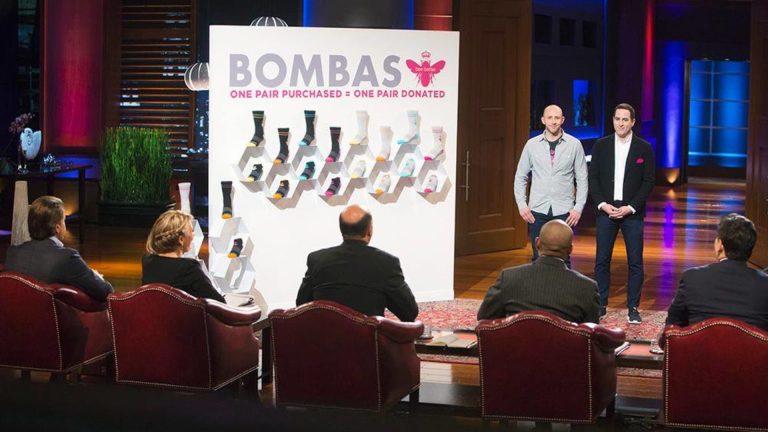Bombas founder David Heath is stepping down from his role as CEO as the socks and T-shirt company looks to expand beyond its direct-to-consumer roots.
Bombas President Jason LaRose, a former Under Armour and Equinox executive, will take over as the company’s next CEO effective Thursday. Heath said he realized it was necessary for a retail veteran to lead the company through its next phase of growth.
“We’ve reached a size and scale that is beyond my expertise. I didn’t come from a big apparel company before … I found myself more so over the last 18 months saying, ‘I don’t know what to do next,'” Heath, who is staying at Bombas as its executive chair, told CNBC in an interview. “So then, when I looked at someone with Jason’s background … having that tried and true experience is what will set Bombas up to succeed for the next chapter and I think I feel more comfortable having someone with Jason’s experience in the driver’s seat.”
LaRose, who spent six years at Under Armour and oversaw its North America business, takes the helm at a critical point in Bombas’ growth story.
Bombas’ revenue has grown 22% in its current fiscal year through April, it’s reached more than $2 billion in lifetime sales and its EBITDA is at a “super healthy, double digit” margin, LaRose told CNBC. The company’s footwear segment, such as its ultra-popular Sunday Slipper, is expanding the fastest. The company expects footwear revenue will soar more than 70% this year, but socks are still growing steadily, with sales up 17% in April compared to the prior year.
But in order to reach its goal of growing from a Shark Tank startup into a multibillion dollar company over the next five-to-10 years, Bombas needs to expand its wholesale presence. Retailers that primarily sell online like Bombas tend to reach a growth ceiling and need to turn to other channels to keep scaling profitably.
Under LaRose’s direction, Bombas is looking to grow its wholesale revenue from around 7% of sales to between 10% and 20%. The company also wants to test out physical stores.
“More than 60% of socks in this country are sold in physical locations, you know, whether that’s stores we could open, or stores that we fill with our partners … the wholesale opportunity is big for us,” said LaRose. “It’s also a billboard for us, right? It’s a chance to tell our story. When the customer walks by, we have a chance to tell them about the mission every time, why we’re here, let them touch and feel the product, which is always important when you’re introducing somebody to a new apparel brand.”
Bombas currently sells in Nordstrom, Scheels and Dick’s Sporting Goods, and unlike some of its peers, it isn’t considering Amazon as a wholesale channel. Instead, it’s looking to expand its assortment offered by its current partners, try out its own stores and perhaps bring on some new wholesalers – if they’re the right fit.
Digitally native brands that have long enjoyed the benefits of a direct model, such as customer data and the ability to stay close to customers, are often wary about expanding too deeply into wholesale because it’s less profitable and it’s harder for brands to tell their stories. For a company like Bombas, which spent years developing what it calls the “most comfortable socks, underwear, and T-shirts” on the market, that storytelling is extremely important – especially at a price point of around $15 per pair of socks.
However, it’s that very attitude that has led some to criticize the direct selling model because of how it can stymie growth and lead to unsustainable business models. Many of the early direct-to-consumer darlings have seen their valuations shrivel up as they chase profitability years after they were founded. E-commerce has become harder to do profitably, and at a certain point, stores and wholesale are a more effective and profitable customer acquisition tool for some companies than marketing online. Selling goods through wholesale channels allows brands to scale and acquire customers more profitably than just selling online.
Brands like Bombas that were early to move to wholesale – Heath joked that the company “focused on profitability before it was cool” – understand the need for expansion but have looked to be strategic about who they partner with. Growth is important, but so is maintaining a brand, which is critical to staying ahead of rivals.
“As a DTC brand, we care so much about our brand and our story, it has to be somebody who’s going to do an excellent job taking care of our brand. We’re not out there to be out there,” said LaRose. “We’re looking at some other partners. We’ll continue to always look for people who we think strategically give us access to the right customer, you know, nothing to announce yet on that front, but we’ll keep looking.”
Disclosure: CNBC owns the exclusive off-network cable rights to “Shark Tank.”

